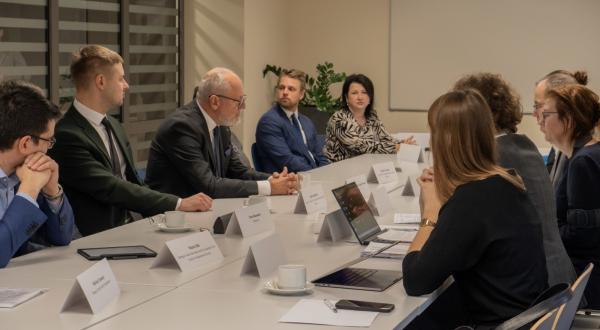The RSU Student Union: Students’ Friend and Advisor
For Rīga Stradiņš University (RSU) students, just like for society at large, this is a complicated time of change when everyone must adapt their everyday activities to the current regulations. The RSU Student Union (SU) actively continues to represent students’ interests and assist them in the study process. The successful spring academic seminar that was recently held by SU attests to this.
Aija Tumova (pictured), Head of Academic Affairs at the Student Union and a third-year student at the Faculty of Medicine, talks about the challenges, rapid changes to the study process, students’ feelings and the new opportunities these unprecedented time present.
What are your tasks at the Student Union?
I am Head of Academic Affairs and my daily duties, together with my deputy Sintija Sovane, include cooperating with student representatives, leaders of the study years, and faculty representatives to address issues that are important to students in relation to the study process. For example, we meet the heads of departments and lecturers to talk study courses and what might need to be improved. We also meet deans to discuss the way specific study courses have been adjusted to remote studies, changes to the examination process, and to convey students’ suggestions.
We also organise educational seminars for students, get involved in improving and revising study-related documents, and try to prepare informative materials on topicalities in the study process.
What drives you to be actively involved in the Student Union?
First and foremost it is an opportunity to participate in improving things at the university, to help my fellow students, work in the information centre, and get students' views heard. It gives me the possibility to represent not only myself, but also the other students. Whether the study process takes place on-site or remotely, there are things that can be improved. If students know who to turn to, and who will listen, the solution can be found much more effectively.
How would you describe studying remotely?
It was difficult at the beginning, as you had to find the motivation and plan your schedule. It was hard adjusting to studying so independently and to actively search for additional information. There are study courses that are easier and there are courses that require more involvement than if they were in person. For my theoretical classes, all the necessary information can be obtained on the e-studies platform and by reading additional materials. There are, of course, concerns regarding the practical classes and placements.
Can you name a study course that can serve as a positive example?
I would like to single out clinical pharmacology. It is a good example of how a class can be conducted using Zoom where we can have individualised discussions with lecturers about anything that is unclear to us, as well as specific topics in depth. Soon, we will also be taking our first remote test. In the case of certain study courses, information about how they will be conducted, test results and the examination type has not been immediately available and is still incomplete.
As I see it, in the process of remote learning, the most significant aspect is the exchange of information and communication with lecturers so that all the necessary information about the course, examinations and platforms or programs is available and clear. It should be taken into account that lecturers and course leaders need to provide information in a timely manner for students to be able to assess if additional technical equipment is necessary.
The spring academic seminar that was held recently also demonstrates the work of the Student Union. How did it go? Were students interested in what you had to offer?
Attendance was quite good with more than 60 people participating remotely. Each lecture had a link and all those interested could join the lecture that seemed the most appealing to them. In my opinion the first lecture on efficient time management was particularly useful to students. This was the best attended lecture even though it was the first one and took place early on a Saturday morning. Remote learning poses a considerable challenge to any student as it requires more independent work, which, in turn, requires time management.
The final lecture on academic integrity was of a more practical nature with seminar participants participating in a discussion. Seminar participants could grade different violations according to their severity and contribute to creating a policy for academic integrity.
How would you compare on-site and online seminars taking into account the way information is acquired?
On-site seminars have a limited number of participants, usually 40–50 people. In an online seminar, lectures can be offered to a larger audience. When holding on-site seminars, newcomers and experienced students have to be separated so that specific information can be provided to each group. In an online seminar, however, separate lectures and group work can be organised simultaneously for specific target audiences. We survey students, gather their answers and, based on the information we get, send them links to specific lectures, inviting them to participate in the seminar. For instance, if a student has attended another seminar organised by the Student Union, e.g. the autumn academic seminar, we add them to the experienced group and don't make them listen to the basics all over again. Of course, every student can choose which lectures to take themselves.
What would you encourage students to do?
I would wish them to continue motivating themselves and to plan their time efficiently. If they have any questions about the study process, or need clarification on an issue, I encourage them to contact the lecturers responsible for the specific study course and the Student Union in order to look for answers together.





